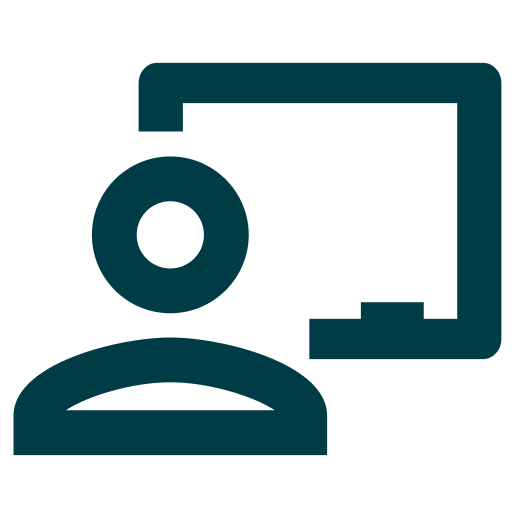Many organizations believe they can gain immense value from effective, versatile assessments. Whether you’re an instructor trying to improve learning outcomes and prepare your students for a licensure exam or a corporation looking to train employees on new tasks, scenario-based assessment may fit well for your needs.
What Is Scenario-Based Assessment?
Scenario-based assessment is a method of evaluation in which “a hypothetical situation is created in scenario-based assignments where students are required to apply their theoretical knowledge according to the scenario given” (Asian Association of Open Universities Journal). This approach is an extension of experiential learning that is supported by theories such as John Keller’s ARCS Model, Herman Witkin’s Theory, and Cognitive Learning Theory.
Using this model enables the assessor to more accurately evaluate an exam-taker’s mastery of the content by allowing the instructor to see how that individual would use their newly acquired knowledge in real-world circumstances. Through the experience of applying academic learning to practical scenarios, students can expand their knowledge beyond the confines of a textbook or lecture. Some of the many benefits of implementing scenario-based assessment include:
- The development of problem-solving abilities
- Learning experiences that stick with students
- A safe space for practicing or developing skills
- Learning from mistakes by receiving feedback that re-enforces the proper approach
- The opportunity for guided exploration
- An alternate assessment type for learners who struggle with other formats
A Scenario-Based Assessment Case Study in University-Level Communications Coursework
A 2012 study conducted at the Virtual University of Pakistan measured the effectiveness of scenario-based assessment exercises for students enrolled in mass communication courses. Students across five different classes were given assignments designed to replicate real-life, professional scenarios. Based on the results of a student questionnaire, as well as the “descriptive statistics, regression analysis, a one-sample t-test, and an independent sample t-test” used to analyze the data, incorporating scenario-based assessment into the curriculum had the following benefits:
- Increased student-instructor interaction
- Improved analytical skills
- Increased understanding of course material
Scenario-based assessments also elicited positive feedback from students on their effectiveness.
Based on the results of this study, the overall learning environment improved through increased student-teacher interaction.
Objective Structured Clinical Examinations (OSCE) and Scenario-Based Assessment
In subject areas where evaluations involve observations and a corresponding rubric, scenario-based assessment is an important tool. A perfect example are the Objective Structured Clinical Examinations (OSCE) used for evaluating future health care professionals.
OSCEs are conducted by having students move through a series of assessment stations where they are tested on the practical skills for their respective health care profession. Some stations involve “standardized patients”, professionals who have been instructed on what symptoms they should present and how to respond to students, dependent on how or what the student presents to them. The student’s interaction with these standardized patients is used to measure their mastery of skills, ranging from patient communication to diagnostic abilities. There is a set team of evaluators, and “all students get examined on predetermined criteria on same or similar clinical scenario or tasks with marks written down against those criteria thus enabling recall, teaching audit and determination of standards” (Oman Medical Journal).
OSCEs allow students to practice under real-world circumstances without subjecting actual patients to unnecessary risk. Using a predetermined rubric ensures students receive standardized feedback on where they are exceeding as well as where they need to improve.
A study of nursing students in Taiwan showed that individuals who underwent a scenario-based simulation course in preparation for their OSCEs expressed higher confidence and preparedness than students who participated in more traditional methods.
Business Applications
Scenario-based assessments (and learning [SBL]) also work well in the business world. The processes and outcomes are the same — only the environment is different. Training an employee, rather than a student, using SBL and then assessing them using real-world scenarios has the potential to improve both learning and retention.
Corporations can also benefit from incorporating scenario-based assessment into the hiring process. Asking scenario-based interview questions enables organizations to predict how potential employees would conduct themselves in specific professional situations such as juggling multiple projects, addressing customer concerns, or resolving conflicts with coworkers or supervisors. Here are some popular scenario-based interview questions:
- How would you handle being asked to perform a task that was completely new to you?
- Can you tell us about a time you led a project or initiative that did not go as planned? How did you react?
- Tell us about a time that you disagreed with a supervisor and how you handled that situation?
Questions like these can increase the chances that companies make the most informed decisions on who to hire.
Scenario-Based Assessment Benefits Everyone
Scenario-based assessment is a proven tool for helping students achieve enhanced mastery of course learning objectives, and most importantly, it prepares them for their future careers. Outside of education, this method of examination offers great value to companies who want to assess employees who have been trained for new tasks as well as during the hiring process. This versatile tool has a variety of applications both in education and the professional world.
For more information about scenario-based assessments through ExamSoft, schedule a demo today.
Sources:
CommLab India: All About Using Scenario-Based Assessments in Online Learning
Adobe eLearning: 7 Examples of Scenario Based Learning (SBL) for Formal and Informal Learning
Massey University: What Is Scenario-Based Learning?
Oman Medical Journal: Objective Structured Clinical Examination: The Assessment of Choice
Indeed Career Guide: 5 Situational Interview Questions (With Example Answers)



